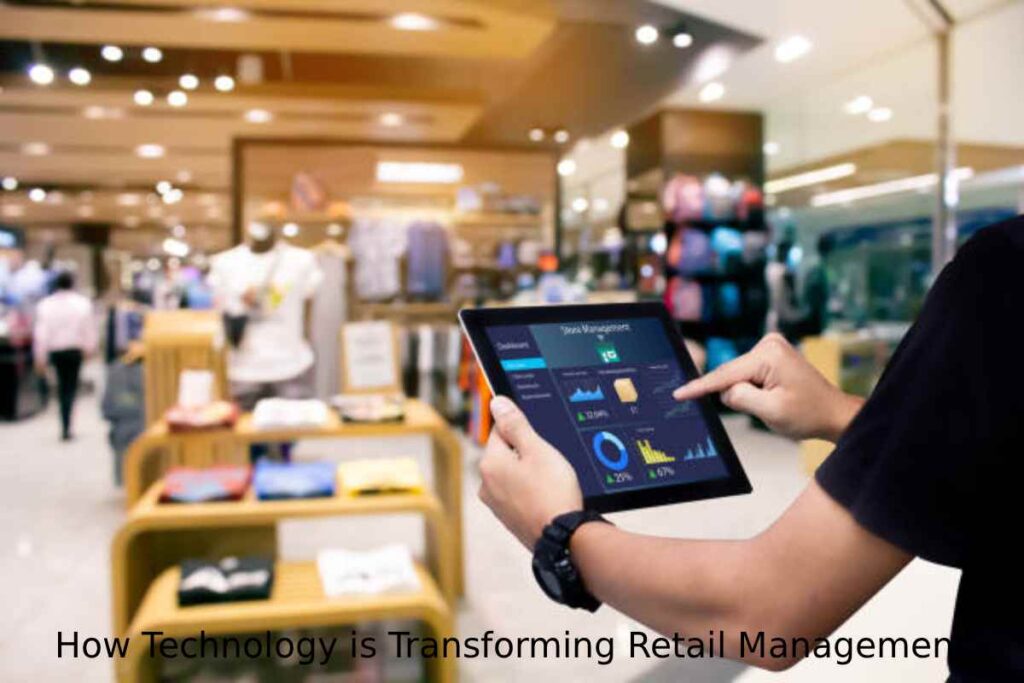Ever noticed how shopping today feels different than it did just a few years ago? Technology is changing the entire landscape of retail, making it smarter, faster, and far more customer-friendly. Even a simple trip to the store or a few clicks online reveals just how much tech is involved in delivering a smooth shopping experience.
This article explores how technology is transforming the way retail businesses operate, what it means for those interested in a retail management course, and why understanding these changes is crucial for anyone eager to build a successful retail career.
The New Face of Retail Management
Imagine walking into your favorite clothing store and being greeted by a screen that instantly shows you personalized deals, or finding restocked shelves just as you’re looking for a particular brand. These are examples of technology in action, turning ordinary stores into smart environments.
Retailers are embracing digital systems to:
- Track inventory in real time
- Personalize marketing offers
- Streamline checkouts
- Analyze customer buying patterns
As a result, they save money, reduce errors, and improve customer satisfaction.
From Inventory to Insights: Automation Everywhere
Think back to when stocktaking meant physically counting every item. Today, technology does most of this hard work for retailers. Automation tools can scan shelves, detect inventory gaps, and even trigger automatic reorders when supplies get low.
Modern retail management is powered by:
- Barcode scanners and RFID tags for tracking merchandise
- Automated warehouses with robotic pickers
- Cloud-based software that updates inventory data instantly
This means less manual labor and more time spent serving customers, which is exactly what retail managers aim for.
The Rise of Omnichannel Shopping
Shoppers are everywhere — browsing on phones, visiting stores, comparing prices online. Omnichannel retailing is all about giving customers a seamless experience across physical and digital channels.
Retail management professionals are now learning to:
- Integrate e-commerce with traditional store operations
- Ensure brands offer the same promotions, products, and service quality in every channel
- Use data collected from multiple sources to create a complete picture of the customer journey
Omnichannel success depends on well-organized systems and quick communication between teams, areas that technology has made much easier.
Smarter Analytics for Better Decisions
What if retailers could predict what you’ll buy next week? Thanks to analytics, businesses can turn huge volumes of data into actionable insights.
By applying tools learned in a retail management course, managers can:
- Identify shopping trends and peak hours
- Discover which products sell fastest and which need a fresh strategy
- Fine-tune pricing and promotions based on customer behaviors
It’s almost like having a crystal ball for retail, allowing managers to react faster and more confidently than ever.
Personalization and Customer Experience
Remember when a salesperson would recognize you and suggest items you might like? Technology helps recreate this, but on a bigger scale.
Retailers use artificial intelligence (AI) and machine learning to:
- Recommend products online based on your browsing history
- Send personalized coupons or emails when you’re most likely to use them
- Design loyalty programs that really fit your shopping style
Customers feel valued and are more likely to return, and retail businesses benefit from higher sales and stronger relationships.
Streamlined Operations with Mobile and Cloud Services
Mobile apps aren’t just for shopping; they help retail staff do their jobs better. Managers can access sales data, communicate with teams, and schedule shifts with just a few taps.
Here’s how mobile and cloud services keep things running smoothly:
- Real-time updates on stock and sales figures
- Online training and support for employees
- Quick communication between stores, suppliers, and headquarters
Faster operations mean happier customers and a more productive team.
Security Technology Protects Stores and Data
Retail management isn’t just about sales – it’s also about keeping stores and customer data safe.
New security technologies help retailers:
- Monitor store video feeds from anywhere
- Protect payment systems from cyber threats
- Safeguard personal data so customers feel confident shopping
A retail manager’s job increasingly involves working with IT specialists to make sure everything—from point-of-sale terminals to staff scheduling apps—is secure.
The Role of Retail Management Courses
With technology changing so quickly, continuous learning is key. A retail management course gives students hands-on experience with the latest retail tools and systems.
Participants learn:
- How to use analytics for marketing and operations
- Best practices for integrating digital and physical retail
- Techniques for improving customer engagement through tech
Employers look for candidates who can not only use these technologies, but also adapt quickly as new tools appear. Students get to practice these skills in real-world scenarios, preparing for today’s job market.
Explorations: IIM and Retail Management Education
Institutes like IIM offer specialized programs in retail management that focus on technology’s role in transforming the industry. An IIM Retail management course blends practical insights with academic excellence, helping students lead change in retail organizations.
Alumni go on to manage flagship stores, lead e-commerce initiatives, and drive digital transformation in major retail chains.
Tech Trends Shaping the Future of Retail
Still curious about where retail technology is headed?
Here are some emerging trends:
- Virtual reality (VR) and augmented reality (AR) shopping experiences
- Cashier-less “smart stores” using facial recognition and sensors
- Eco-friendly inventory tracking to reduce waste
Retail managers who understand these trends are better equipped to plan for the future and deliver unforgettable customer experiences.
Wrapping Up: Embracing Tech for Success
Technology isn’t just transforming the way retailers manage their businesses; it’s opening up new opportunities for innovation and growth. Whether you’re considering a retail management course or thinking about a career in retail, understanding technology’s impact is crucial.
Modern retail managers use tech to make faster decisions, personalize experiences, and connect with customers on multiple platforms. As the industry continues to evolve, learning these skills is the smartest way to stand out and succeed.


Trackbacks and Pingbacks